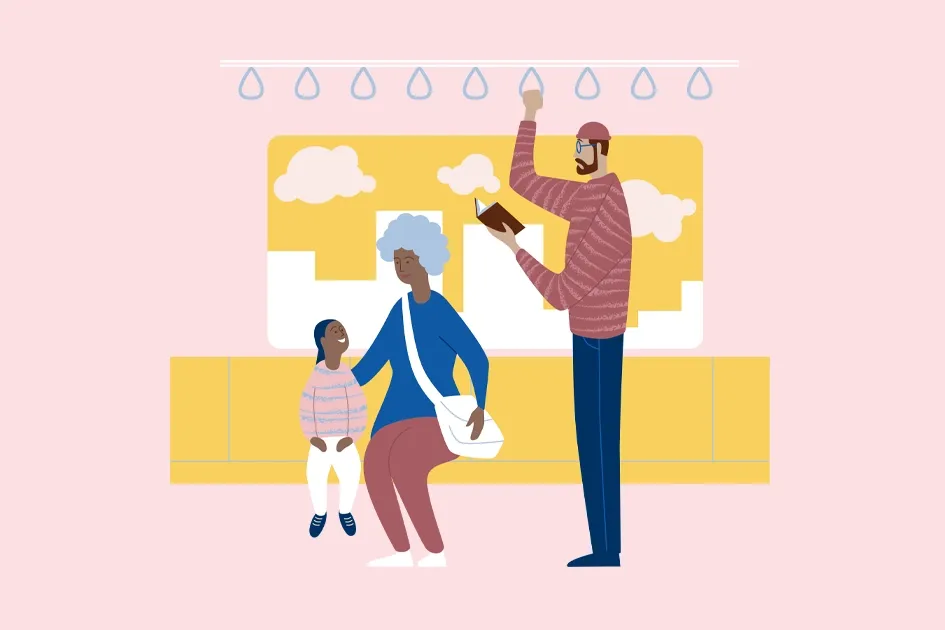The phone rang five long times before the answering machine picked up. Mom had just placed the last platter of food on the table when the phone started ringing again. This wasn’t the first call, or the fifth, or even the 10th that evening. We were nearing the 15th, all from the same woman—a church member staying a mere mile away at the state psychiatric hospital. My family and I sat with tight faces as the answering machine picked up. Someone prayed then passed the bowl of green beans. We filled our plates as we waited in the quiet space before the next inevitable ring.

I can’t remember a time in my childhood when family life wasn’t intimately connected to the needs of our church members. My parents pastored a small church, and with little to no staff besides the two of them, they shared the duties of the day-to-day church business alongside the spiritual care of its members. And so dinners were interrupted, plans canceled. There were weekend workdays, and requests for prayer at all hours. Some members needed more care than others, and Brenda, our most frequent caller, was one of them.
For years, Brenda moved in and out of the state hospital for a mental health condition. She had rare periods of lucidity, but often called our home in a daze of incoherence and tears begging to speak with “Pastor.” She called us for at least a decade, sometimes as often as 30 times in a single night. I often woke to the shrill ring of the phone at 2 a.m., rolled over, and swore her name in the dark.
On her worst days, which often fell during the summer, my siblings and I had no patience for the constant calls. While we sat around in various stages of summer-induced boredom, Brenda called and called and called. We either refused to answer or picked up the phone and shouted “HE’S NOT HOME!” before hanging up with a loud bang. As a kid, I found the disturbance to my reading or TV viewing insufferable. I gave no thought to Brenda’s mixed-up mind—a muddle of need, confusion, and despair.
She called us for at least a decade, sometimes as often as 30 times in a single night.
My parents, while frustrated with the constant barrage of phone calls, often took the time to listen and pray with Brenda, visiting her in the hospital on occasion. But, as with all church member’s needs, my parents also drew indistinct lines between their vocational lives and everyday living. It was a constant tug of war between following the ways of ever-compassionate Jesus, while recognizing their own limitations.
As I watched my parents care for her, and I began to understand more about the torment of a brain that will not comply, I empathized with her situation. Brenda had nowhere else to turn. Reaching out to “Pastor” was the closest thing she understood to grasping the hem of Jesus.
In his gospel, Matthew tells us that Jesus was moved by compassion for the crowds pressing against Him in each town He visited, and His compassion moved Him to act—to heal, restore, and proclaim the gospel to those in need. He was a man of deep understanding and great feeling, but it was His compassion that healed the lepers, raised Lazarus from the dead, and turned two fish and a few loaves of bread into a feast.
Compassion compelled Jesus to alleviate suffering, and I believe it also compelled my parents as they walked in His ways. Researcher and writer Brenè Brown writes, “Compassion is not a virtue—it is a commitment. It’s not something we have or don’t have—it’s something we choose to practice.” For those in helping professions, who practice this regularly, it’s easy to grow addicted to the feelings associated with practicing compassion and ignore their own need for rest, restoration, and balance. We know that, at times, even Jesus withdrew from the crowds.
We all have the capacity to practice compassion, and the ability (or wisdom) to set boundaries within that practice often feels elusive at best. As a child, my response and my parents’ response to Brenda were opposite. One response was too little, the other response perhaps was too much. The practice of compassion could be a place where we come to define and enact healthy boundaries—becoming a source of healing for all of us.


